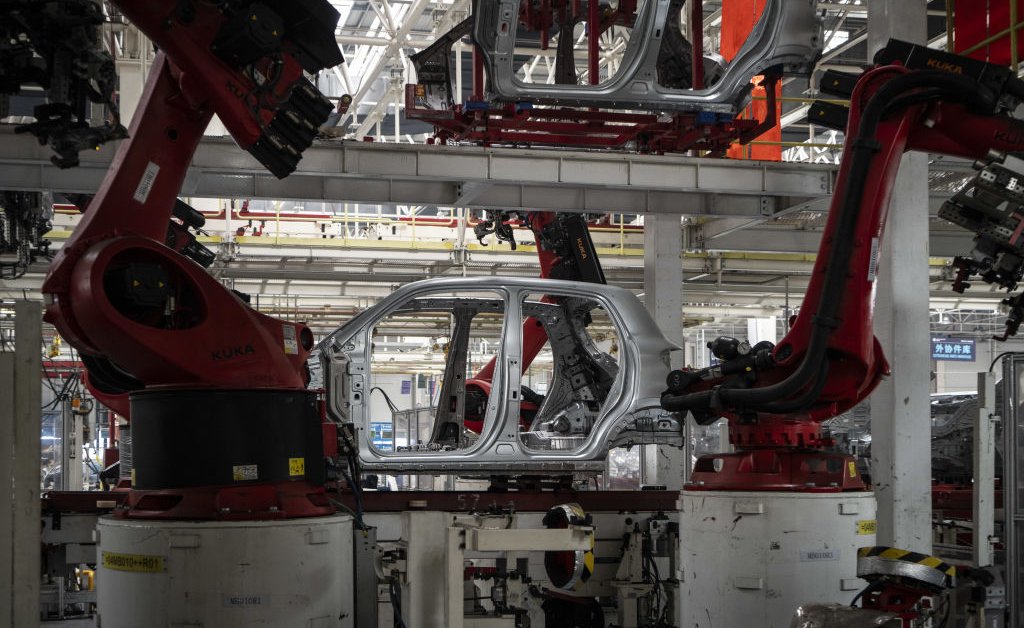China is advising its carmakers to keep advanced electric vehicle technology in the country, even as they expand their manufacturing operations around the world to avoid tariffs on Chinese exports. The Chinese government is encouraging automakers to export knock-down kits to their foreign plants, where key parts of the vehicle would be produced in China and then assembled in their destination market. This move is aimed at safeguarding China’s EV industry know-how and mitigating regulatory risks, with Chinese automakers being told not to make investments in India and to notify the Ministry of Industry and Information Technology before investing in Turkey.
Chinese carmakers, such as BYD Co. and Chery Automobile Co., are looking to globalize their operations in order to offset competition and sluggish sales in their home market. However, China’s directive that key production should remain within the country could hinder these efforts. By requiring carmakers to keep advanced technology in China, the government is trying to maintain control over the EV industry and prevent the loss of important intellectual property.
The Ministry of Commerce in China held a meeting with more than a dozen automakers in July to discuss these guidelines, which also include restrictions on auto-related investments in India. The Chinese government’s efforts to keep advanced technology within the country could impact the plans of Chinese carmakers to build factories in countries such as Spain, Thailand, and Hungary. By requiring notification before investing in Turkey, the Chinese government is exerting control over the international expansion of its automakers.
China’s directive could also impact European countries that have been trying to attract Chinese carmakers to boost local economies and create jobs. BYD, for example, is planning to build a factory in Hungary, but may face challenges in meeting China’s requirements for keeping key production within the country. This could potentially disrupt the plans of Chinese carmakers to expand their manufacturing operations globally and reach new customers in foreign markets.
As Chinese carmakers seek to avoid tariffs on Chinese-made EVs, the government’s push to keep advanced technology within the country could present obstacles to their globalization efforts. By requiring key production to remain in China, the government is aiming to protect the intellectual property and technological advancements of the Chinese EV industry. This directive underscores China’s desire to maintain control over its growing EV sector and ensure that the country remains a leader in electric vehicle technology.









